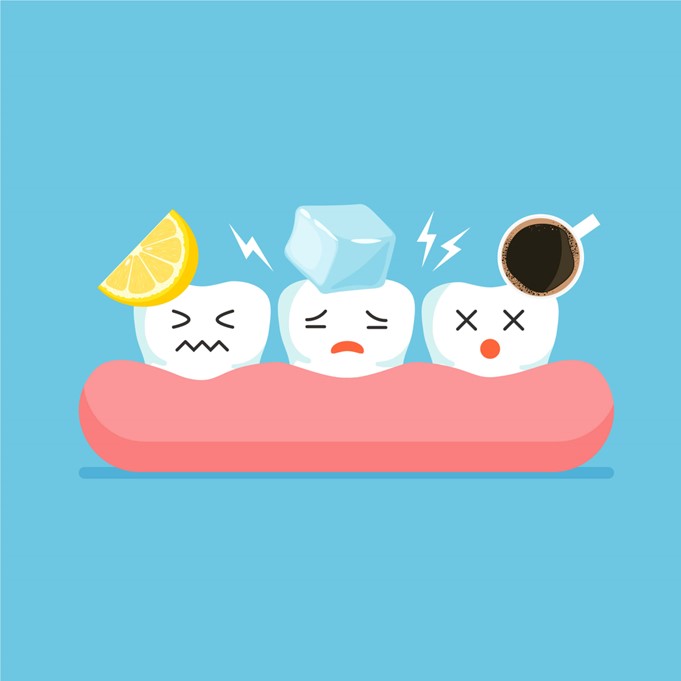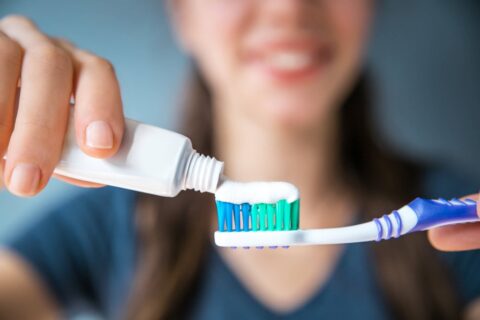11 Bad Habits That Can Harm Your Teeth
Do you want a brighter, healthier smile? Diligently brushing and flossing every day is a good start, but this is only part of the equation. To fully protect your smile, it’s important to recognize what oral habits to avoid. Here are eleven dental health mistakes to cut from your routine for good
1. Nail Biting
It might seem harmless, but biting your nails puts stress on your front teeth. Repeated pressure can increase jaw tension, wear down enamel, cause chipping, and contribute to small fractures that weaken your teeth’s structure. To change the habit, try applying a bitter-tasting polish or keeping your nails trimmed. Fidget tools or stress balls offer a better outlet for nervous energy.
2. Brushing Too Hard
Forceful brushing doesn’t clean better. In fact, hard bristles and heavy pressure strip away enamel and irritate soft tissue, causing sensitivity and gum recession. Gentle, circular motions with a soft-bristle brush are much more effective. An electric toothbrush with a pressure sensor may also be helpful.

3. Brushing Right After Eating
Your enamel softens temporarily when you eat, especially if the food is acidic. Brushing when your enamel is in this weakened state wears it down faster. It’s better to rinse with water immediately after eating and wait about 30 minutes before brushing. This gives your saliva time to neutralize acids and re-harden the enamel surface.
4. Clenching and Grinding
Grinding your teeth while you sleep can erode enamel, flatten chewing surfaces, and lead to painful jaw problems. Over time, this habit may cause chronic headaches and TMJ disorders. Stress often fuels clenching, so introduce daily wind-down routines, such as stretching or mindfulness exercises, to reduce the impulse. Then, wear a custom nightguard for an additional layer of protection.
5. Mouth Breathing
Saliva neutralizes acids and cleans the mouth naturally. Breathing through your mouth while you sleep leaves your teeth dry and more prone to decay. Address the root cause of chronic mouth breathing with your medical provider or dentist to improve your breathing and oral health. Proper hydration and nasal breathing exercises are also beneficial to incorporate into your routine.
6. Chewing Ice
It might be refreshing, but chewing ice is tough on your teeth. Ice is hard enough to crack enamel, damage crowns, and break fillings. That satisfying crunch could result in a frantic trip to the dentist for emergency care. Instead, enjoy cold, refreshing water or switch to crushed ice if you must.
7. Using Teeth as Tools
Ripping off clothing tags, cutting tape, or holding objects with your teeth may seem convenient, but these tooth-damaging habits can cause cracks or chips. Your teeth were built to chew, not act as stand-ins for scissors or utility knives. Keep simple tools close by and resist the urge to multitask with your mouth.
8. Frequent Snacking
Even the healthiest snack foods can feed bacteria in the mouth if you nibble constantly. When there’s no break between snacks, your saliva doesn’t get a chance to neutralize acids and rinse away food debris. A better approach is to eat three balanced meals a day with limited snacking in between.
9. Sucking on Sugary Lozenges
Breath-freshening mints and soothing cough drops may seem healthy, but many contain sugar that lingers on the teeth for extended periods. Look for sugar-free alternatives made with xylitol, which helps reduce bacterial growth and stimulate saliva. If bad breath is a concern, chewing sugar-free gum after meals works just as well.
10. Drinking Acidic and Sugary Beverages
Exposing your teeth to soda, energy drinks, juice, and sweet tea wears away enamel. Even drinks marketed as “healthy” can be highly acidic. Limit how often you indulge in these drinks, use a straw to minimize contact with your teeth, and rinse with water when you’re finished to neutralize acids.
11. Getting Oral Piercings
Lip rings, tongue bars, and other oral piercings can strike or rub against your teeth and gums. This contact creates microfractures, wears down enamel, and causes soft tissue to recede. The risk of infection also rises if piercings interfere with brushing or flossing. Avoid oral piercings and remove any you got in your youth. If that isn’t an option, switch to flat-back studs and take extra care during your oral hygiene routine to protect against further harm.
Get More Healthy Teeth Tips in Scottsdale
Avoiding oral habits that harm your teeth starts with the right knowledge and support. S&C Dental Scottsdale has helped thousands of patients develop healthier routines and restore their smiles with precise, personalized care. Our comprehensive services include routine cleanings, cosmetic enhancements, and restorative treatments. Please contact our Scottsdale office for more information or schedule an appointment online today.


